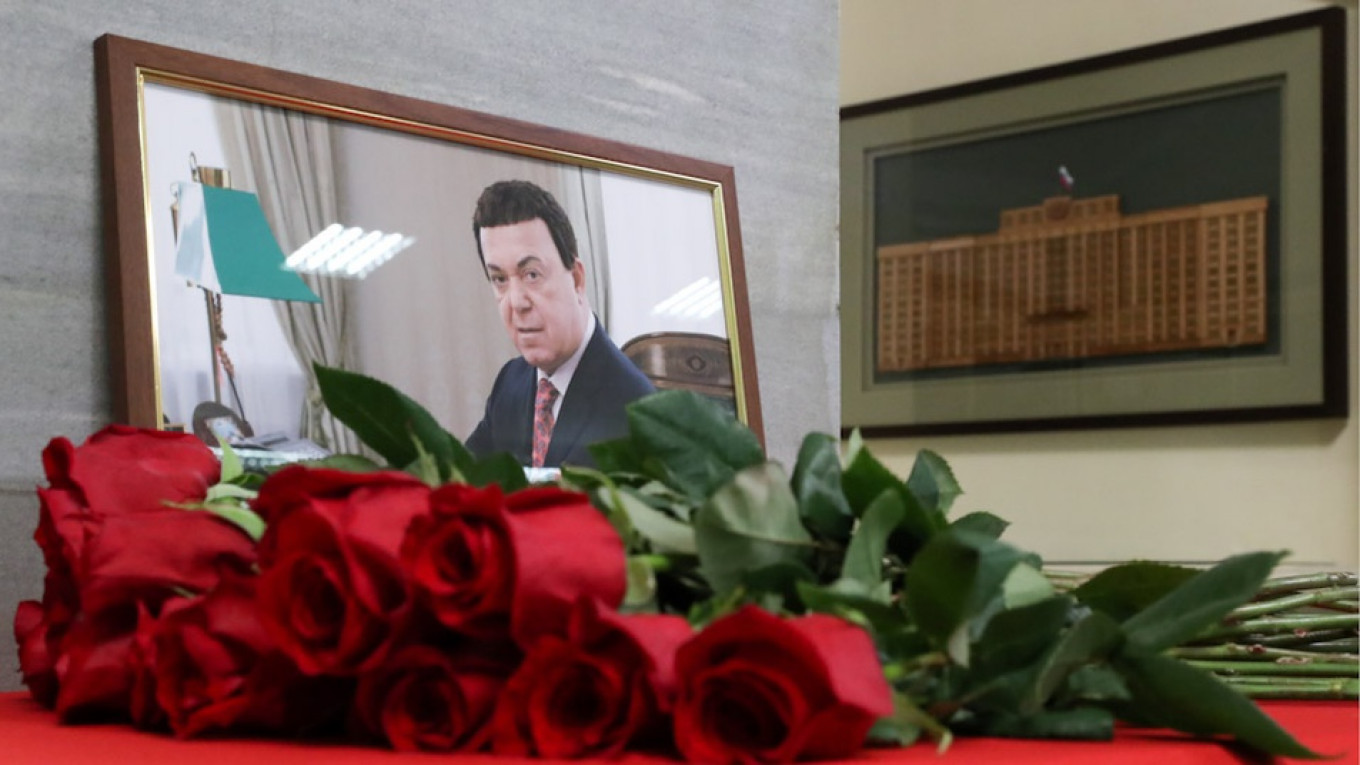Iosif Kobzon, one of the most famous Russian popular singers, died on Thursday after a battle with cancer that lasted several years. Likened by many to American crooner Frank Sinatra, Kobzon was an iconic figure. He was more than just a singer -- he was a household name, the singer of a generation. And in more recent years, his political views and presence at every official state event made him more infamous than famous.
Born in 1937 into a Jewish family in a mining town in the Donbass region, Kobzon revealed his unique voice and talent for singing at an early age. Even though he participated in various children’s singing contests, he chose to study geology at the university. In the late 1950s he decided to switch to professional signing and enrolled in the Gnesin Institute in Moscow. That’s when his career took off.
His first album was recorded in 1962, and he started touring around the Soviet Union and performing on almost a daily basis. People recall his rich baritone and incredible love of performing. His repertoire included about 3,000 songs, and his concerts were not an hour or two, but literally went well into the night, with Kobzon as fresh at 2 a.m. as he was when he came on stage.
During Brezhnev’s “stagnation era” he was a fixture at every official concert. In 1983 Kobzon received U.S.S.R. State Award and became People’s Artist of U.S.S.R. in 1987.
Kobzon sang some of the most popular Soviet songs, including “A u nas vo dvore” ("In Our Courtyard"); “Ya Lublyu tebya zhizn” ("I Love You, Life"); “Mgnoveniya” ("Moments") and other songs from the soundtrack to cult Soviet TV series “Seventeen Moments of Spring.”
Later in life Kobzon got involved in politics. He was elected a State Duma deputy in 1995 and was a parliament member ever since, recently serving as deputy head of the culture committee.
In October 2002 during the terrorist takeover of a theater where the musical Nord-Ost was being performed in Moscow, Kobzon was the first one to engage in negotiations and singlehandedly led out three children, a woman and a British citizen.
Just like Sinatra, Kobzon was rumored to have ties to the mafia. For this alleged affiliation, he had been barred from entering the U.S. since the 1990s. He was also added to the list of sanctioned persons by the E.U. for his active pro-Russian stance on the war in East Ukraine.
But even people who revile his political positions love his voice -- the soundtrack of a Soviet generation.
He will be buried in Vostryakovskoye Cemetery on Sept. 2.
A Message from The Moscow Times:
Dear readers,
We are facing unprecedented challenges. Russia's Prosecutor General's Office has designated The Moscow Times as an "undesirable" organization, criminalizing our work and putting our staff at risk of prosecution. This follows our earlier unjust labeling as a "foreign agent."
These actions are direct attempts to silence independent journalism in Russia. The authorities claim our work "discredits the decisions of the Russian leadership." We see things differently: we strive to provide accurate, unbiased reporting on Russia.
We, the journalists of The Moscow Times, refuse to be silenced. But to continue our work, we need your help.
Your support, no matter how small, makes a world of difference. If you can, please support us monthly starting from just $2. It's quick to set up, and every contribution makes a significant impact.
By supporting The Moscow Times, you're defending open, independent journalism in the face of repression. Thank you for standing with us.
Remind me later.






